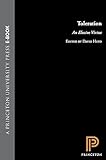Toleration : An Elusive Virtue / ed. by David Heyd.
Material type: TextPublisher: Princeton, NJ : Princeton University Press, [1998]Copyright date: ©1996Edition: Course BookDescription: 1 online resource (280 p.)Content type:
TextPublisher: Princeton, NJ : Princeton University Press, [1998]Copyright date: ©1996Edition: Course BookDescription: 1 online resource (280 p.)Content type: - 9780691043708
- 9781400822010
- 179.9
- BJ1431 .T64 2001
- online - DeGruyter
- Issued also in print.
| Item type | Current library | Call number | URL | Status | Notes | Barcode | |
|---|---|---|---|---|---|---|---|
 eBook
eBook
|
Biblioteca "Angelicum" Pont. Univ. S.Tommaso d'Aquino Nuvola online | online - DeGruyter (Browse shelf(Opens below)) | Online access | Not for loan (Accesso limitato) | Accesso per gli utenti autorizzati / Access for authorized users | (dgr)9781400822010 |
Frontmatter -- Contents -- Preface -- List of Contributors -- Introduction -- 1. Toleration: An Impossible Virtue? -- 2. Toleration as a Virtue -- 3. Tolerance, Pluralism, and Relativism -- 4. Pluralism and the Community of Moral Judgment -- 5. Two Models of Pluralism and Tolerance -- 6. Autonomy, Toleration, and Group Rights: A Response to Will Kymlicka -- 7. The Boundaries of Justifiable Tolerance: A Liberal Perspective -- 8. Toleration and the Struggle against Prejudice -- 9. The Ring: On Religious Pluralism -- 10. The Instability of Tolerance -- 11. Freedom of Expression -- 12. The Difficulty of Tolerance -- Index of Names and Cases
restricted access online access with authorization star
http://purl.org/coar/access_right/c_16ec
If we are to understand the concept of toleration in terms of everyday life, we must address a key philosophical and political tension: the call for restraint when encountering apparently wrong beliefs and actions versus the good reasons for interfering with the lives of the subjects of these beliefs and actions. This collection contains original contributions to the ongoing debate on the nature of toleration, including its definition, historical development, justification, and limits. In exploring the issues surrounding toleration, the essays address a variety of provocative questions. Is toleration a moral virtue of individuals or rather a pragmatic political compromise? Is it an intrinsically good principle or only a "second best-solution" to the dangers of fanaticism to be superseded one day by the full acceptance of others? Does the value of toleration lie in respect to individuals and their autonomy, or rather in the recognition of the right of minority groups to maintain their communal identity? Throughout, the contributors point to the inherent indeterminacy of the concept and to the difficulty in locating it between intolerant absolutism and skeptical pluralism.Religion, sex, speech, and education are major areas requiring toleration in liberal societies. By applying theoretical analysis, these essays show the differences in the argument for toleration and its scope in each of these realms. The contributors include Joshua Cohen, George Fletcher, Gordon Graham, Alon Harel, Moshe Halbertal, Barbara Herman, John Horton, Will Kymlicka, Avishai Margalit, David Richards, Thomas Scanlon, and Bernard Williams.
Issued also in print.
Mode of access: Internet via World Wide Web.
In English.
Description based on online resource; title from PDF title page (publisher's Web site, viewed 30. Aug 2021)


